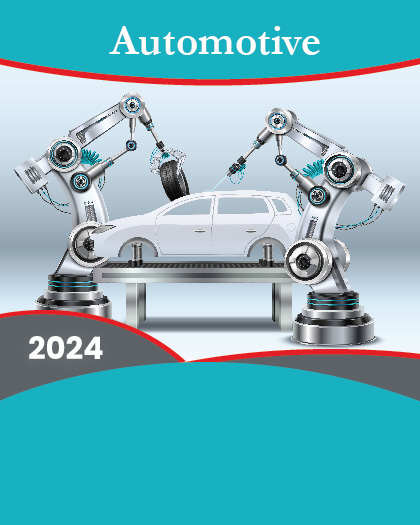
Alternative Automobile Technologies Have Become Increasingly Important To Curb Increasing Atmospheric Pollution Caused By Automobile Emission, And Find The Alternative Solution To Substitute Depleting Oil Reserves, A Major Energy Source To Drive Vehicles. Automotive Energy Recovery System Utilizes Dissipated Energy To Provide Power To The Engine Or Batteries And To Enhance Engine Efficiency By Recycling Exhaust Gasses.
Dissipated Energy Improves The Overall Performance Of A Vehicle And Minimizes Greenhouse Gas Emissions. Most Of The Electric Vehicles Are Equipped With The Regenerative Braking System, Whereas Turbocharger And Exhaust Gas Recirculation Have Greater Penetration In Diesel & Gasoline-Powered Vehicles.
Prominent Market Players Invest Significantly In R&D To Enhance Their Technical Expertise And Product Portfolio. For Instance, In June 2016, Continental Ag Launched A Turbocharger With Raax Turbine Technology.
Stringent Vehicular Emission Rules & Regulations, Increase In Trend Toward Downsizing The Engine, And Stringent Fuel Economy Standards Are The Factors That Fuel The Growth Of Global Automotive Energy Recovery System Market. Furthermore, Rise In A Number Of Electrical Vehicles & Evse Infrastructure And Improved Vehicle Performance Supplements The Market Growth. However, Increase In Overall Cost & Weight Of Vehicles And High Repair & Maintenance Cost Restrain The Market Growth. Irrespective Of These Challenges, Increase In Concerns About Environment And Advancement In Technology, Such As Introducing Waste Energy Recovery System In Two-Wheelers, Are Expected To Provide Lucrative Opportunities For The Market Growth.
The Global Automotive Energy Recovery System Market Is Segmented Based On Product Type, Vehicle Type, And Geography. On The Basis Of Product Type, The Market Is Divided Into Regenerative Braking System (Electric, Hydraulic, And Others [Flywheel & Spring]), Turbocharger (Twin Turbocharger, Wastegate Turbocharger, And Variable Geometry Turbocharger), And Exhaust Gas Recirculation (Egr). By Vehicle Type, The Market Is Categorized Into Two-Wheeler, Passenger Cars, And Commercial Vehicles. Geographically, The Market Is Analyzed Across North America, Europe, Asia-Pacific, And Lamea.
Prominent Players Profiled In The Report Include Robert Bosch Gmbh, Continental Ag, Autoliv Inc., Hyundai Mobis, Honeywell International Inc., Mitsubishi Heavy Industries, Ltd., Cummins Inc., Tenneco Inc., Faurecia, Borgwarner Inc., Ihi Corporation, Rheinmetall Automotive Ag, Hitachi Automotive Systems, Ltd., Maxwell Technologies, And Skleton Technologies.
Key Benefits
The Report Includes An Extensive Analysis Of The Factors That Drive As Well As Restrain The Global Automotive Energy Recovery System Market.
The Market Projections From 2014 To 2022 Are Included Along With The Affecting Factors.
The Report Also Provides Quantitative As Well As Qualitative Trends To Assist The Stakeholders Understand The Situations Prevailing In The Market.
An In-Depth Analysis Of Key Segments Demonstrates Stakeholders With Different Types Of Automotive Energy Recovery System And Different Vehicle Type.
Competitive Intelligence Highlights The Business Practices Followed By Leading Market Players Across Various Geographies.
Automotive Energy Recovery System Market Key Segments
By Product Type
Regenerative Braking System
Electric
Hydraulic
Others
Turbocharger
Twin Turbocharger
Wastegate Turbocharger
Variable-Geometry Turbocharger
Exhaust Gas Recirculation (Egr)
By Vehicle Type
Two-Wheelers
Passenger Cars
Commercial Vehicles
By Geography
North America
U.S.
Canada
Mexico
Europe
Germany
Uk
Italy
France
Rest Of Europe
Asia-Pacific
China
Australia
South Korea
Japan
Rest Of Asia-Pacific
Lamea
Latin America
Middle East
Africa
Market Players in Value Chain
Robert Bosch Gmbh
Continental Ag
Autoliv Inc.
Hyundai Mobis
Honeywell International Inc.
Mitsubishi Heavy Industries, Ltd.
Cummins Inc.
Tenneco Inc.
Faurecia
Borgwarner Inc.
Ihi Corporation
Rheinmetall Automotive Ag
Hitachi Automotive Systems, Ltd.
Maxwell Technologies
Skleton Technologies
























